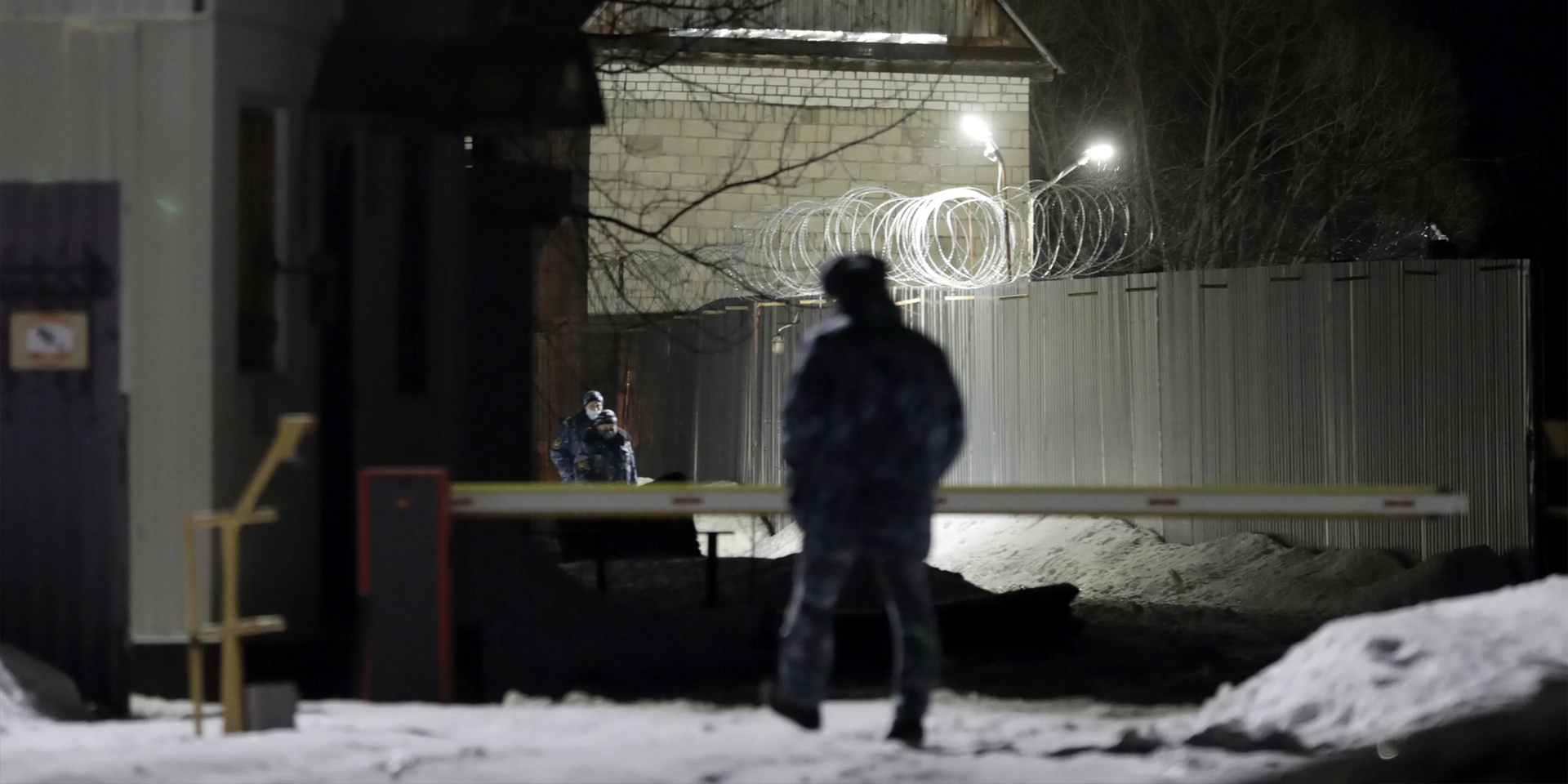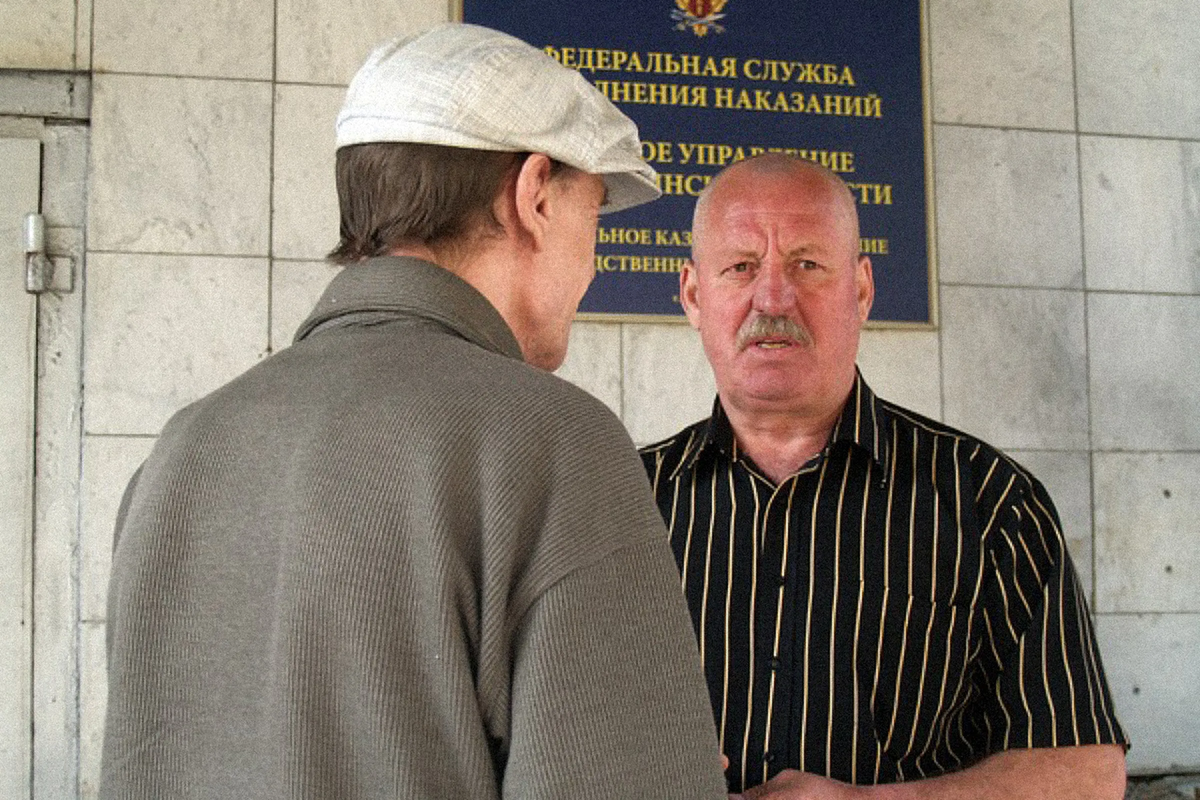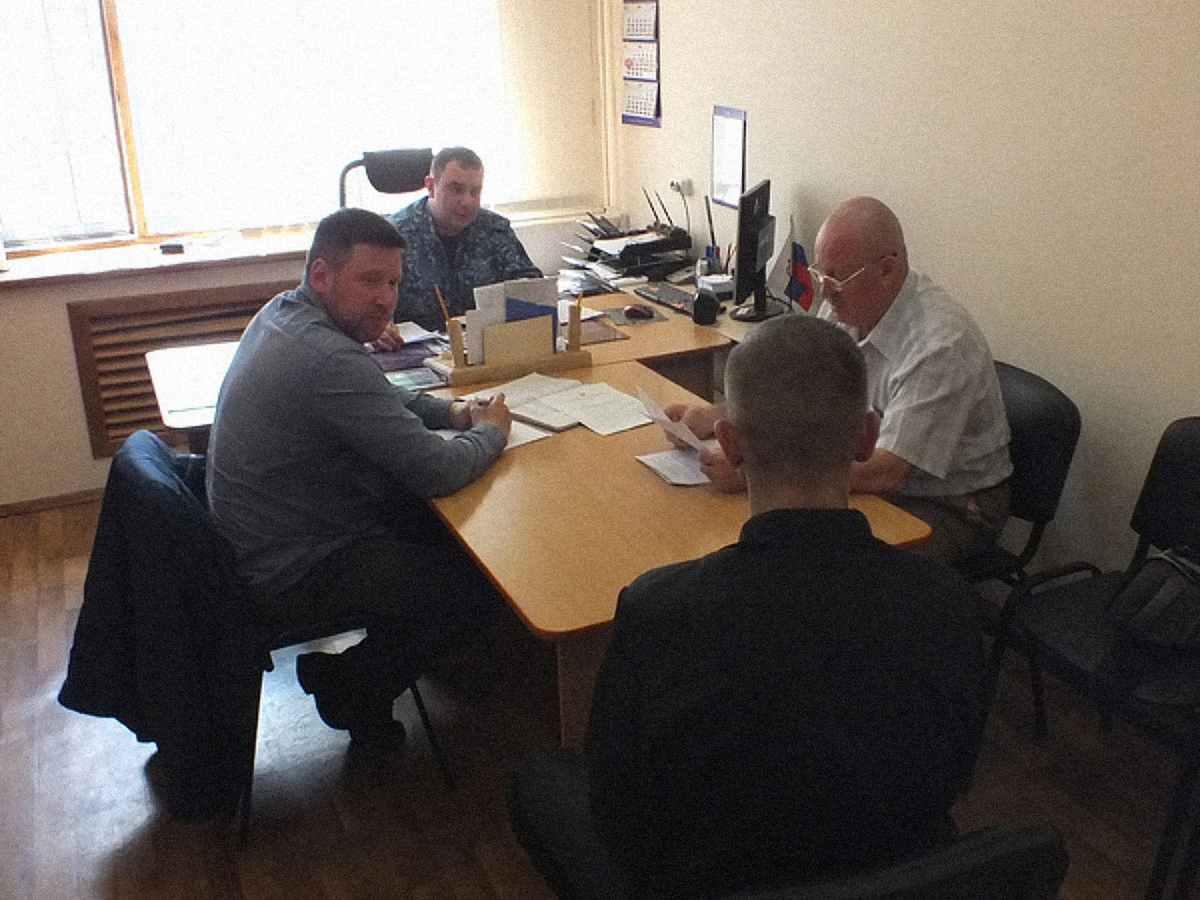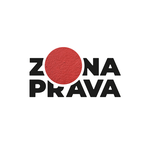“Much like the Prison Staff, They Think That Inmates Can Be Beaten, Tortured and Humiliated without Consequence”
Why public oversight committees in Russian regions are pushing out human rights lawyers and replacing them with ex-siloviki and businesspeople loyal to prison admin

On 31 March 2021, Russian opposition politician Aleksey Navalny, while serving his sentence in Vladimir Oblast, went on a hunger strike that lasted till 23 April. He was protesting the absence of adequate medical care in his corrective labor colony. Navalny’s personal physicians called his treatment a torture. But the vice-chairman of the regional public oversight committee responded to Navalny’s complaints by calling him a malingerer.
In March 2021, Ivan Zhdanov, then serving as the CEO of Navalny’s Anti-Corruption Foundation, learned that his father Yuri was put under arrest by the court of Rostov Oblast. Later Yuri Zhdanov complained about bad conditions in his pre-trial facility, but the members of the local oversight committee simply refused to visit him in detention. The chairman of the committee explained the refusal like this: “He’s not some celebrity, for my colleagues to send a special delegation just for him.”
Public oversight committees for the human rights of inmates, or POCs for short, have been operating in all Russian regions for 12 years. Their members are supposed to ensure human rights and decent living conditions for inmates in prisons, pre-trial detention facilities and labor colonies. They can visit inmates, accept their complaints and query the administration of penitentiary facilities for information. But according to human rights activists, the government is no longer interested in outside criticism: the most active POC members are being pushed out of the committees, to be replaced by former law enforcement officers loyal to the Federal Penitentiary Service, or FSIN.
Important Stories, in collaboration with human rights organization Zona Prava, examined the POC membership in the 15 Russian regions most infamous for torture and killings of the inmates. Here is how former colony directors, siloviki and FSIN contractors pushed human rights defenders out of the committees, and why torture in prison colonies will likely continue.
“Quick to respond and eager to help”
In 2018, David Mdivanishvili, an inmate of Vladimir Prison №2, also known as Vladimir Central, lost a part of his tongue under suspicious circumstances. The deputy attorney for oversight told David’s lawyer that the inmate bit off his own tongue and also managed to get his front teeth knocked out. But Mdivanishvili’s wife says that he had lost his front teeth several years prior to the incident. The chair of Vladimir POC Vyacheslav Kulikov visited the inmate who, according to Kulikov, used gestures to explain that he mutilated himself. Human right activists promptly accused the POC, along with the regional FSIN department, of lying.
In 2021, Kulikov was still chairing the POC of Vladimir Oblast. His candidacy had been put forward by the public organization of FSIN veterans. His vice-chair Vladimir Grigoryan, was put forward by Boyevoe Bratstvo (The Battle Brotherhood), the national public organization of military veterans.
In his interview with TV Rain (an independent Russian media channel — Ed.note) Grigoryan said that he had worked in Vladimir FSIN for more than 30 years. Another member of the Vladimir POC put forward by Boyevoe Bratstvo, Valeriy Nazarov, is a former pre-trial detention facility chief and an ex-mayor of police. Another member, ex-police officer Vladimir Aleksandrov, was CEO of Vladtorgmontazh company from 2007 to 2021, according to regional media Zebra. The company repaired refrigerators for the Vladimir FSIN Institute of Jurisprudence. Important Stories discovered that almost 70 percent of POC members in Vladimir oblast are affiliated with the government or law enforcement agencies. Click the Fact-check toggle button at the top of the article to learn more about this estimate.
By government-affiliated we mean those POC members who previously worked in the government institutions or government-affiliated non-commercial organizations, as well as owners of commercial companies that won high-cost government procurement tenders. By law enforcement-affiliated we mean the members who previously served in the military or were employees of MVD (Russian Ministry of Internal Affairs), FSIN or other law enforcement agencies.
In the first half of 2021 alone, 30 inmates died in the Friedrich Joseph Haass Prison Hospital in Saint Petersburg. In 2017, former director of the hospital Dmitriy Ivanov was prosecuted for professional negligence because of a female patient who died of cancer. According to her lawyer, the woman was denied adequate medical care for several years because the hospital did not have an oncology cancer ward. Later the court ruled Ivanov innocent.
The Saint-Petersburg POC consists of 40 members, the maximum number allowed. Important Stories established that 17 of them are affiliated with government or law enforcement agencies. Furthermore, the chairman Alexander Kholodov assembled a clique of members personally loyal to him.
![The chairman of the Saint-Petersburg POC Igor Kholodov [left] with Igor Potapenko, the head of regional FSIN administration for Saint-Petersburg and Leningrad Oblast](https://static.istories.media/uploaded/images/f5cefb588cb04d3b9be56a6f25efa2c1-1200xautopx_1x.png)
Apart from his work in the oversight committee, Kholodov is also a member of the Civic Chamber of Russia (an institution responsible for, among other things, electing POC members every three years — Ed.note) and the National Automobile Association focused on protecting the rights of car owners. Three more POC members also have NAC membership: an activist of National People’s Front (an NGO founded by Vladimir Putin), Georgiy Krasavtsev and lawyer Andrei Markov.
Another member of Saint-Petersburg POC, Vladimir Degtyarev is an owner of Stroyreestr, a construction company that won a government tender worth 500,000 rubles for the capital renovation of Saint-Petersburg penal colony #6 in the summer of 2020. In 2013 through 2015 another company owned by Degtyarev, Alfa78, according to the data provided online company evaluation service Kontur.Focus, was contracted by MVD of Leningrad oblast to “perform technical and emergency building maintenance.”
Human rights activists Ekaterina Kosarevskaya and Yana Teplitskaya, who in 2018 broke the story about the beatings and extortion of inmates of Saint-Petersburg detention facility Kresty, weren’t re-elected to the POC. Alexander Kholodov told Important Stories that in order to be re-elected, the activists had to obtain a recommendation from the Civic Chamber of Saint-Petersburg. According to him, they simply chose not to do it.
The former vice-chairman of Saint-Petersburg POC and human rights lawyer Leonid Agafonov says that anyone who criticizes the penal system risks their re-election to the committee. “People who have spoken publicly about the violence committed by law enforcement officers, are skipped during the next election. They are being replaced either by former siloviki or by people loyal to the system or people making business deals with the system. All the dedicated human rights defenders were silently pushed out because they were zealously inspecting the prisons and informing the public about atrocities done there. And FSIN began to try influencing the committee membership.”
The POC chairman Alexander Kholodov confirms that he has brought in a group of people personally affiliated with him. “By law, POC inspections require at least two members, no one is allowed to go there alone. All the active POC members – and I’m no exception – are trying to bring in more people that are quick to respond and eager to help. Maybe they are not very well versed in law and have little experience defending human rights. But they are willing to visit the facilities and do it in their own free time. Why did I bring in several [acquaintances]? If one gets sick, I call another; if they are on vacation or busy with their families, I make a third call and someone eventually responds.”
Battle brotherhoods on human rights watch
The chairman of the Saint-Petersburg POC is not the only one to have an inner circle of close acquaintances. In 2016, Vasiliy Katane, the leader of the local NGO Battle Brotherhood, was elected chairman of the Chelyabinsk POC. “Be ready for torture and murders. Dear inmates and their relatives, the good times are over, no one will appeal on your behalf anymore, no one will be helping you with living conditions anymore, no one will document your wounds or protect you from torture,” wrote a Chelyabinsk human rights activist Oksana Trufanova in her Facebook account in response to this news (via Znak.com).
Two other members of Battle Brotherhood – Oleg Grishkevich and Elena Chepik – are also on the committee. Learn more about other affiliations of Battle Brotherhood members in the Fact-check section.
Chepik is also a member of Putin-founded National People’s Front. Grishkevich used to manage the supply division in Katane-owned company Veteran-74 (that existed in 2012 through 2017) and, along with Katane himself and another POC member, ex-military officer Fyodor Belke, sat on the Council of public oversight committees.
At the moment of publication, Vasiliy Katane has not responded to Important Stories’ inquiries.
Apart from Katane’s brotherhood, there is also a prominent group of Kossacks in the Chelyabinsk POC. For example, vice-chairman Alexey Anisimov is the ataman of Khutor Kossack Society and a member of the local MVD public council. Two more members of the KKS, ex-military Pavel Voronin and civic chamber expert Vasiliy Koshmar, are also on the oversight committee. The KKS-owned companies earned tens of millions of rubles providing security guard services to government structures. Mostly they provided security guards to the General Directorate of Justice of Chelyabinsk Oblast.


“For the last two election cycles they have been using any and all pretexts not to let me back on the committee,” a former Chelyabinsk POC member and human rights activist Valeriya Prikhodkina told Important Stores “The POC essentially does not exist today. At least some of the previous members did prison inspections, but the current membership does not even do that. The former siloviki are just occupying seats, they don’t visit inmates. [The committee chair] Katane never notices anything: he does not see slashed wrists, he does not see sewed-up mouths, he does not see beaten inmates.”
Important Stories established that more than 55 percent of the Chelyabinsk POC members are affiliated with government or law enforcement agencies. According to Oksana Trufanova, a human rights activist and a former member of the Chelyabinsk POC, the ex-siloviki on the committees usually sympathize with acting FSIN employees. “Normal, active members of the POC were replaced by strawmen who have no relation to public oversight,” says Trufanova “Mostly they are former siloviki. “Much like the prison staff, they think that siloviki can beat, torture and humiliate people, but no one else should be allowed to do that. Even though some of them torture people on a daily basis, they still think that inmates, and not themselves, are the real criminals.”
According to Igor Kalyapin, a member of Nizhny Novgorod POC, human rights activist and the chairman of non-profit organization Komitet Protiv Pytok (“Committee Against Torture”, not to be confused with the UN-affiliated international Committee Against Torture — Ed.note), in 2008, when POCs were first created in the country, the government really was trying to improve the conditions in penitentiary facilities, but four years later the situation began to change. “Somewhere around 2012, an ideological shift happened: the very concept of human rights began to be viewed as an alien, Western set of values,” says Kalyapin “They got this weird idea that Russia is surrounded by enemies, and all those liberal values and human rights are elements of harmful and alien Western ideologies that Russia is better without. And this tendency has only been worsening. And because they (the government — Ed.note) don’t want any criticism, they started to pressure the Civic Chamber to elect to POCs only people that won’t rock the boat, won’t write complaints, and only make formal inspection visits from time to time without aggravating the administration too much.”
Among members of the Nizhny Novgorod POC are the former deputy director of the Main Directorate of FSIN Andrey Mastryukov and the former director of Nizhny Novgorod attorney’s office Sergey Poludnevich. Eleven more members are ex-military, former employees of MVD or MVD schools, or acting members of NGOs that focus on supporting combat veterans or youth military-patriotic upbringing.
Still more members of the Nizhny Novgorod POC are business partners, colleagues and relatives of the chairman and other committee representatives. The committee is chaired by ex-military Mikhail Tarakanov. Apart from the POC membership, he is also on the MVD public council of Nizhny Novgorod and chairs three NGOs in support of combat veterans. Previously he co-founded a non-profit partnership “Veterans for business rights” with another POC member Roman Litvinov.
Toggle the Fact-check button to read about other friendly and collegial relationships within the Nizhny Novgorod POC.
Roman Litvinov is a POC member along with Yulia Litvinova, a co-owner of Mediamagnate Studio that employs Roman as the CEO. Another member of Nizhny Novgorod POC, a decorated officer of MVD Vasily Bugai, is the principal of Nizhny Novgorod vocational and liberal arts school. His vice-principals Sergey Zubarenko and Andrey Mastryukov are also on the committee. Pavel Katin and Vyacheslav Motovichev previously were co-owners of AGROEKO seed and milling company. Igor Korobkov and Vladimir Presnov co-founded the Center of Technological Studies for Development of Society and Science.
At the moment of publication, Mikhail Tarakanov has not responded to Important Stories’ inquiries.
According to Igor Kalyapin, such relationships among POC members affect the committee’s operations as much as the presence of a formidable number of ex-siloviki. “They all know each other, participate in the same networks and share a common past. They feel a certain ideological closeness, they think that problems need to be solved quietly without rocking the boat,” says Kalyapin.
“It’s also very important to have inmates trust you. There is little trust towards siloviki. If the people in prison know you are a former officer, they will be less open. Nobody knows how an ex-silovik will react to a beating complaint: he might register the complaint or he might not do it and have police officers visit you and beat you some more,” adds Saint-Petersburg human rights lawyer Leonid Agafonov.
Alexander Kholodov, the chairman of the Saint-Petersburg POC, who also oversees committee elections in the Civic Chamber, explains that the law does not prohibit relatives or business partners from serving on the same committee. “But we at least try not to put spouses on the same committee,” adds Kholodov “because even if [two POC members] are acquaintances, even if they are close friends they are still two different people, but a man and his wife are finger and thumb. Still, if spouses visit inmates separately or are on the same inspection but accompanied by a third person, there’s nothing bad about it. But having businesspeople with ties to FSIN is not very good. I personally would not maintain any ties to FSIN. But the law does not forbid that either. And if we notice certain issues within the committee we can regulate them and remind members not to mix business and social work.”
“Try to complain, and we’ll have you killed and buried outside the fence”
We established that committee with the most law enforcement-affiliated members is the Karelia POC. Eight out of ten members of the committee are affiliated with law enforcement structures. In 2016—2017, Russian activist Ildar Dadin served his sentence in Karelia for numerous violations of the laws governing public assemblies and rallies. He told journalists that 10 to 12 staff members of Segezh penitentiary colony #7 tortured and beat him on a regular basis.
During one of the meetings with oversight committee members Dadin became visibly ill, according to Karelia’s human rights ombudsman. But a member of Karelia POC Vladimir Dorokhin said that the activist “looked in excellent health, and was smiling and joking throughout the meeting.”
Another activist, a member of Pussy Riot Nadezhda Tolokonnikova told about inhumane working conditions in Mordovia penitentiary labor colony #14 where she served her sentence in 2012—2013 for the performance in the Cathedral of Christ the Savior. “My entire work brigade is working 16 or 17 hours per day in the sewing workshop. From 07:30 till 00:30. We get 4 hours of sleep a day, at best. We get a day off once in one and a half months,” Tolokonnikova wrote in her letter from the colony, after she went on hunger strike protesting working conditions. Members of the Mordovia POC denied that the inmates were working overtime and accused Nadezhda of “fomenting undue public pressure.”
Important Stories found out that eight government and law-enforcement members are currently serving on the Mordovia POC. There are 11 committee members in total: two more are priests and one is an activist of Mordovia Republic Center for Human Rights. One of the committee members, Sergey Yamashkin, served in the counter-terrorist department of the local FSB branch for more than 20 years. Some publications alleged that Yamashkin’s brother — who is also his business partner — was involved in an opaque procurement scheme that supplied ventilators to government hospitals during the COVID pandemic.
“I think having ex-officers of FSIN and MVD on the committee is actually good — if they are not trying to become chairmen and are not the overwhelming majority, i.e. there is less than 50 percent of them,” — says the chairman of Saint-Petersburg POC Alexander Kholodov. “Why is it good? Well, suppose an inmate complains about a conflict with the colony admin. I can bring along two former criminal investigators who are much better than me at figuring out the truth. Or, we have a former FSIN employee who can ask for this or that register when we inspect colonies. The rest of us might not even know such registers exist. But if ex-employees visit colonies to obfuscate the violations of their former colleagues or to demoralize and extort inmates, well I have a very negative opinion on that.”
Human rights lawyer Igor Kalyapin says that even though his work on the Nizhny Novgorod POC has become less effective in recent years, it cannot be called meaningless: “Ten years ago I could solve a problem by writing a single complaint. Now I have to write dozens of complaints – sometimes without any effect. But that doesn’t mean that my work has become any less necessary.”
Chelyabinsk human rights activist Oksana Trufanova is of the opposite opinion: “POCs nowadays are absolutely ineffective and harmful institutions that are holding our country back. People on the committees consider any human rights violations necessary and vindicated. It’s better to abolish these committees for good than try to fix them.”
Editor: Alexandra Zerkaleva
